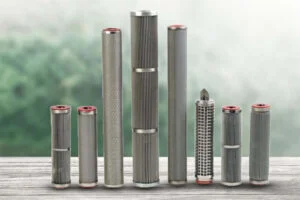The Importance of Filtration
Filtration is a crucial process in various industries, from water treatment to pharmaceuticals. Choosing the right filter cartridge is essential for maintaining system efficiency, ensuring product quality, and protecting equipment. Among the various types of filter cartridges available, string wound filter cartridges are popular due to their versatility, durability, and cost-effectiveness. This blog will guide you through the process of selecting the right string wound filter cartridge for your specific filtration needs.
Understanding String Wound Filter Cartridges
Industrial String wound filter cartridges are cylindrical filters made by winding a continuous strand of material around a central core. This construction creates a gradient density structure, which effectively captures contaminants of varying sizes. The primary materials used for the strands include polypropylene, cotton, glass fibre, and polyester, while the cores are typically made of polypropylene, stainless steel, or tin-plated steel.
Key Benefits of String Wound Filter Cartridges
- Versatility: String wound filter cartridges can be used in a wide range of applications, including water filtration, chemical processing, food and beverage production, and oil and gas refining.
- High Dirt-Holding Capacity: The gradient density structure allows these filters to capture and retain a large volume of contaminants, reducing the frequency of cartridge replacement.
- Customizability: These cartridges can be manufactured in various lengths, diameters, and micron ratings to meet specific filtration requirements.
- Cost-Effectiveness: String wound filter cartridges are generally more affordable than other filter types, making them an economical choice for many applications.
Factors to Consider When Choosing a String Wound Filter Cartridge
- Filtration Efficiency and Micron Rating
The micron rating of a filter cartridge indicates the size of particles it can remove. For example, a 10-micron filter can capture particles as small as 10 microns. When selecting a string wound filter cartridge, consider the size and nature of the contaminants in your process. For fine filtration, choose a cartridge with a lower micron rating, while for coarser filtration, a higher micron rating may be sufficient.
- Material Compatibility
Ensure that the filter cartridge material is compatible with the fluid being filtered. Different materials offer varying resistance to chemicals, temperatures, and pressures. For instance, polypropylene is suitable for most water and chemical applications, while cotton is preferred for filtering edible liquids due to its natural properties.
- Flow Rate and Pressure Drop
The flow rate and pressure drop are critical factors in determining the efficiency of a filtration system. A high flow rate with a low pressure drop is ideal for maintaining operational efficiency. String wound filter cartridges with larger diameters and lower micron ratings typically offer better flow rates and lower pressure drops.
- Temperature and Pressure Conditions
Consider the operating temperature and pressure conditions of your filtration system. Ensure that the filter cartridge you choose can withstand the maximum temperature and pressure without compromising its integrity or performance. Stainless steel or tin-plated steel cores are recommended for high-temperature and high-pressure applications.
- Regulatory Compliance
In industries such as food and beverage, pharmaceuticals, and biotechnology, regulatory compliance is paramount. Ensure that the string wound filter cartridges you select meet the necessary industry standards and certifications, such as FDA compliance for food and beverage applications or USP Class VI certification for pharmaceutical use.
Application-Specific Considerations
- Water Filtration
For water filtration applications, consider the source and quality of the water. Municipal water supplies typically require lower micron ratings (1-5 microns) to remove fine particulates, while well water or surface water may need higher micron ratings (10-20 microns) to capture larger sediments and organic matter.
- Chemical Processing
In chemical processing, the compatibility of the filter material with the chemicals being processed is crucial. Polypropylene is commonly used due to its chemical resistance, but for aggressive chemicals, alternative materials like glass fibre may be necessary.
- Food and Beverage Production
For food and beverage applications, ensure that the filter cartridges are made from FDA-compliant materials. Cotton string wound cartridges are often preferred for filtering edible liquids, such as cooking oils and beverages, due to their natural properties and lack of synthetic additives.
- Oil and Gas Refining
In the oil and gas industry, string wound filter cartridges must withstand harsh conditions, including high temperatures and pressures. Stainless steel cores and high-temperature resistant materials like glass fibre are recommended for these applications.
Conclusion: Making the Right Choice
Choosing the right string wound filter cartridge involves a thorough understanding of your filtration needs and the specific requirements of your application. By considering factors such as micron rating, material compatibility, flow rate, temperature, pressure conditions, and regulatory compliance, you can select a filter cartridge that ensures optimal performance and longevity. With the right string wound filter cartridge, you can enhance your filtration process, improve product quality, and protect your equipment, ultimately leading to increased operational efficiency and cost savings.

No comments:
Post a Comment